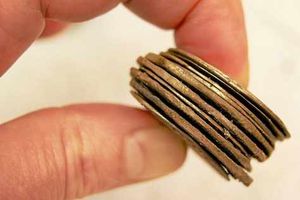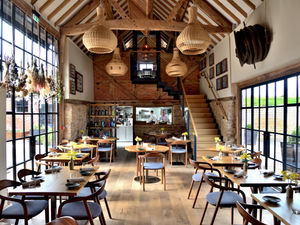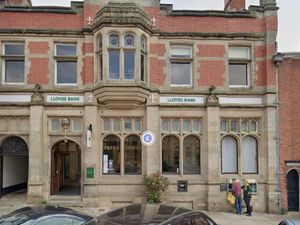Historic hoard of coins found in Shropshire field
[gallery] A buried hoard of English Civil War coins has been discovered by a metal detector enthusiast in a Shropshire farmer's field.

A buried hoard of English Civil War coins has been discovered by a metal detector enthusiast in a Shropshire farmer's field.
Howard Murphy discovered the pot of silver and gold in Bitterley, near Ludlow, and could stand to receive about half of its £30,000 value, after it was declared treasure by Mr John Ellery, coroner for Shropshire.
Click on the image to the right for more photos
The one gold and 137 silver coins are the first Civil War hoard to have been found in Shropshire since the 1930s.
They were found in a leather purse inside an earthware pot about 12 inches down and are thought to have been buried 'in a hurry' – possibly to avoid seizure by marauding troops.
The earliest coin in the trove is from the reign of Edward VI and was cast between 1549-1551, and the latest was from the Bristol Provincial Mint of Charles I which was made between July 1643 and March 1644.
This suggests that the hoard was buried at a date after March 1644, most probably during the time of the English Civil War.
Other coins found in the pot come from the reigns of Elizabeth I and James I.
Peter Reavill, Shropshire Council's finds liaison officer, said: "The hoard is of huge significance for the region of Shropshire, Herefordshire, Worcestershire and the West Midlands. It is a very important find."
History buffs say it appeared to have been hidden quickly at a depth that prevented its rediscovery for 350 years.
Mr Murphy, an experienced metal detector enthusiast, realised he had an important find when he revealed the top of a pottery vessel which was filled with silver coins in February last year.
He resisted the temptation to dig it up himself and instead reported it to Mr Reavill who organised an excavation to investigate the find and its surroundings.
Mr Reavill said: "Howard is from Yorkshire and it takes a bit to ruffle his feathers – but there was a quiver in his voice.
"We were both concerned that if we left it someone else would come and take it away, but the findspot was thankfully out of sight of prying eyes."
To disguise the find before excavation could take place, the pair moved molehills to make the 'findspot' blend in with the surrounding field.
Eventually, the vessel and coins were lifted – with the use of cling film and bandages – in a block of soil and taken to Ludlow, where it was kept in an old fridge to prevent mould setting in.
After a wait of several months, it was transported to the British Museum for specialist excavation and conservation.
The 9cm-wide red pot is thought to have originated from Staffordshire and has multiple handles, suggesting it was often used for passing around hot drinks.
Shropshire Councillor Mike Owen said: "This hoard has thrown light on a dark and turbulent period of our history.
"We have to ask why was such a large amount of money never retrieved?
"We hope to acquire the hoard for the new Shrewsbury Museum and Art Gallery when it opens at the Music Hall in 2013."
Mr Reavill added: "When Howard found this hoard – he did exactly the right thing in reporting it.
"We were able to recover the hoard and save important information."
The find was declared treasure at an inquest in Bridgnorth and will now be valued by an independent committee.
See also - Leader - Coin hoard must remain in Shropshire
By Andy Richardson





